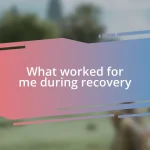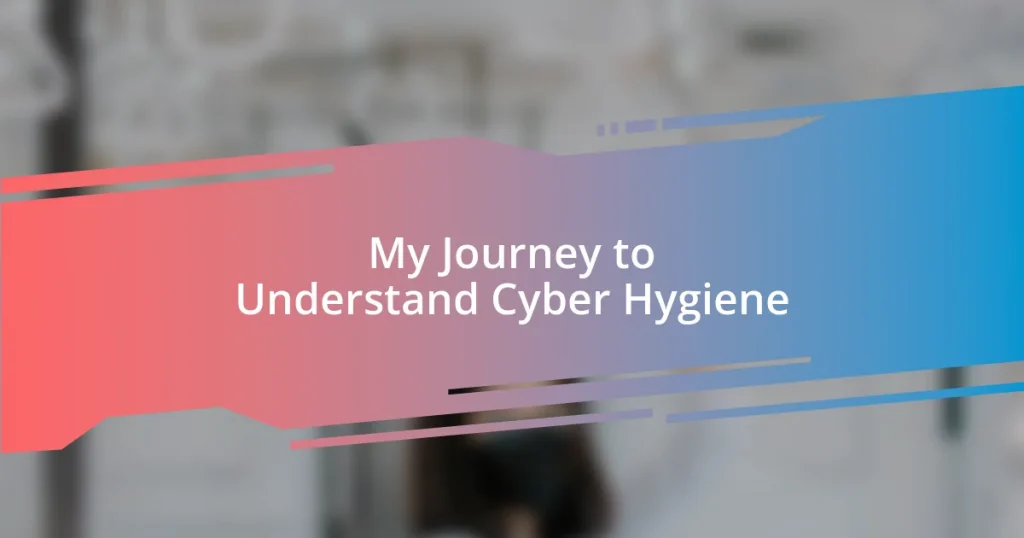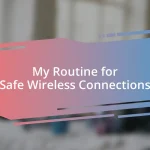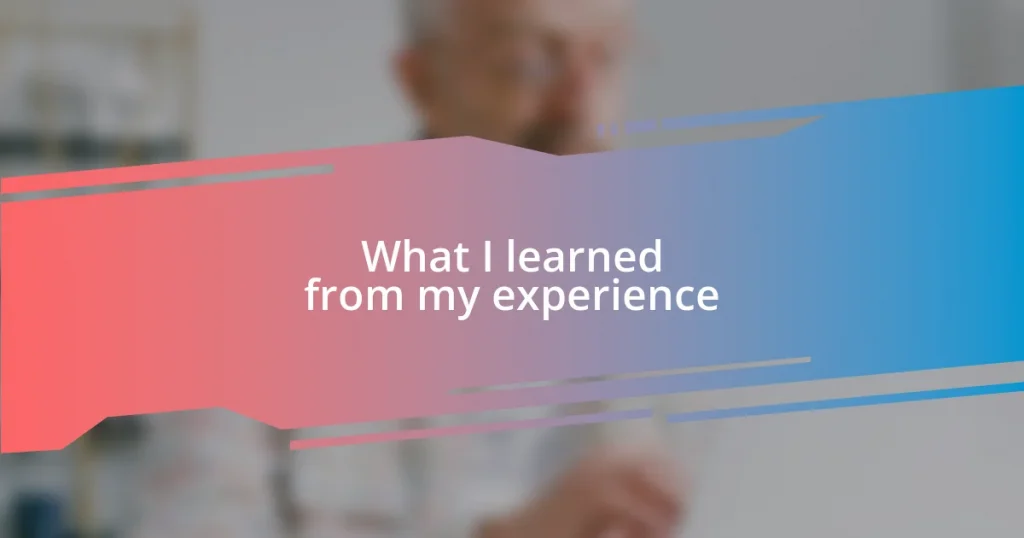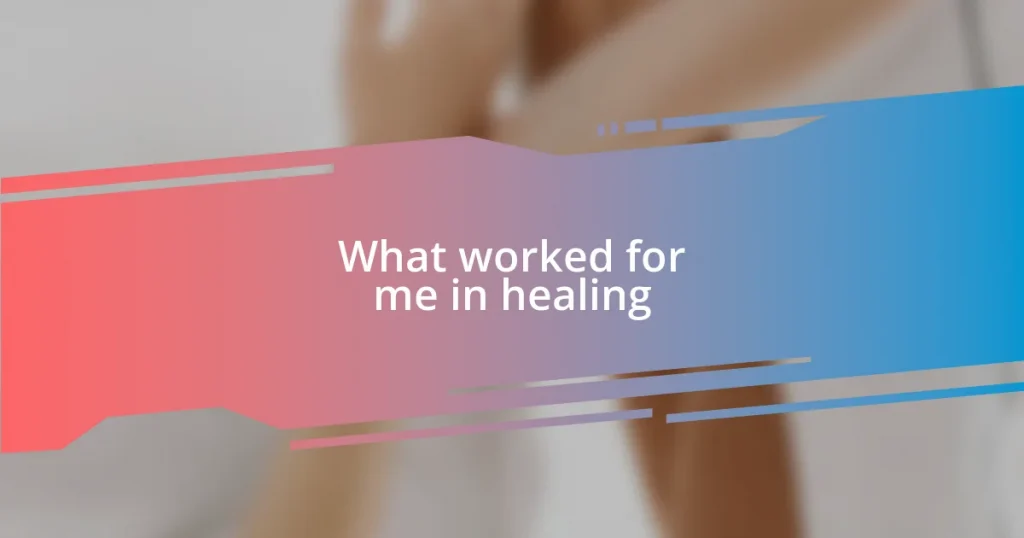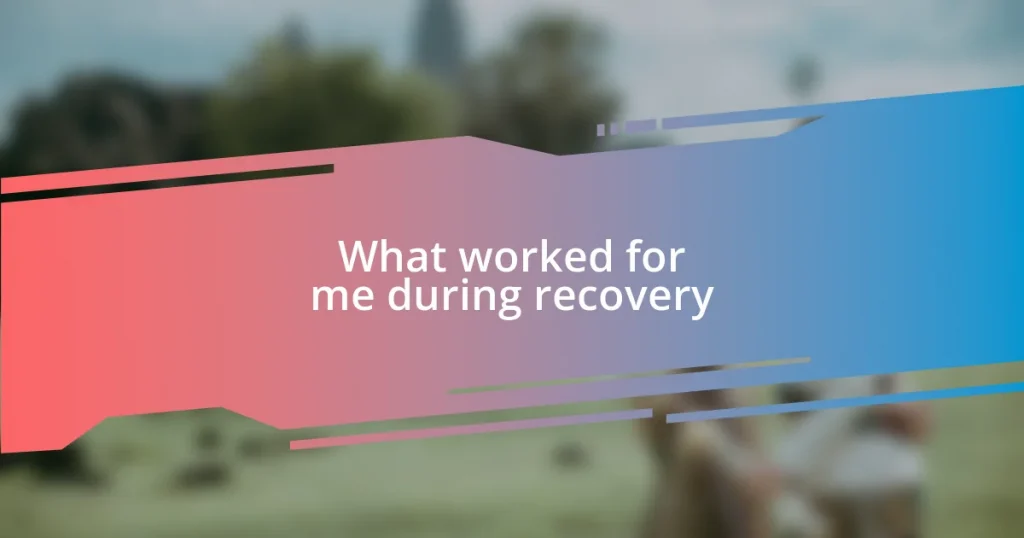Key takeaways:
- Cyber hygiene is essential for protecting digital presence, including using strong passwords, regular updates, and data backups.
- Common mistakes include neglecting two-factor authentication (2FA), overlooking phishing attempts, and failing to review account activity.
- Continuous improvement in cyber hygiene through regular audits, proactive learning, and utilizing effective tools like password managers and VPNs is crucial for enhanced security.
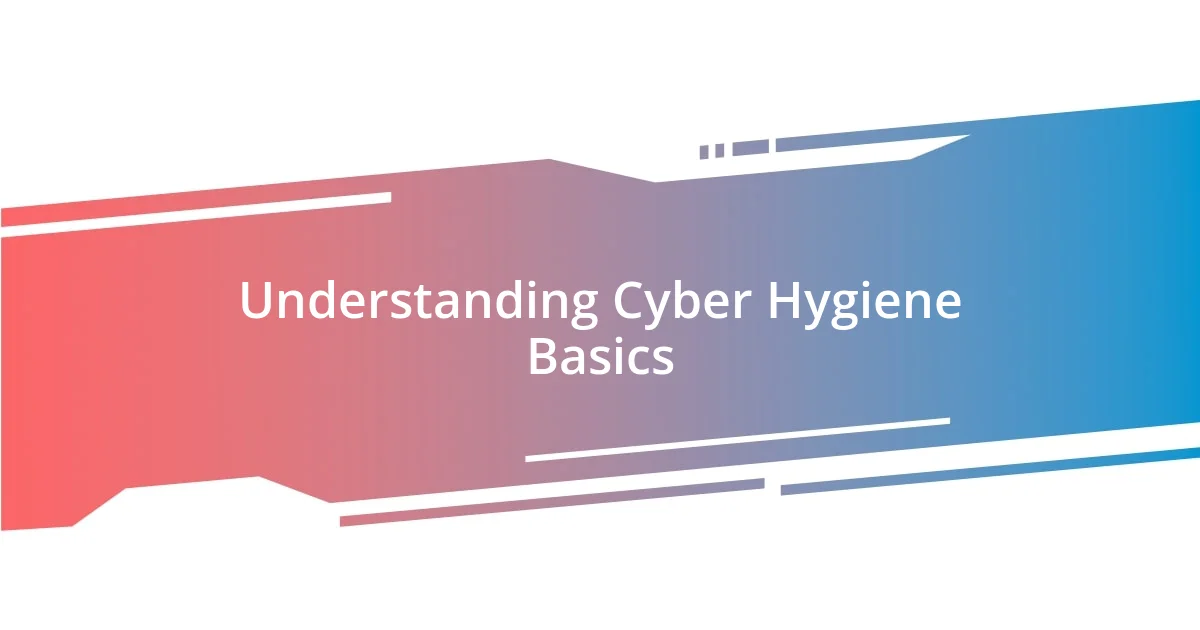
Understanding Cyber Hygiene Basics
Cyber hygiene is a concept that revolves around maintaining the health of your digital presence. I still remember the day I realized that leaving outdated software on my devices was like leaving the front door unlocked—inviting trouble in. Think about it: how often do we update our apps or operating systems, considering it just a mundane task? That habit can be the difference between staying safe and facing major security issues.
One of the foundational aspects of cyber hygiene is using strong, unique passwords for every account. I recall a time when I used the same simple password across several platforms, and it didn’t take long for me to feel the repercussions. Can you relate? It’s astonishing how many people still underestimate the power of a complex password; it’s our first line of defense against cyber threats.
Regularly backing up data is another vital practice that often slips our minds. I once lost important files due to a hard drive failure, and the anxiety was overwhelming. Have you ever considered what would happen to your important documents? By ensuring you have reliable backups, you not only protect your data but also gain peace of mind, knowing you won’t be left in that stressful situation again.
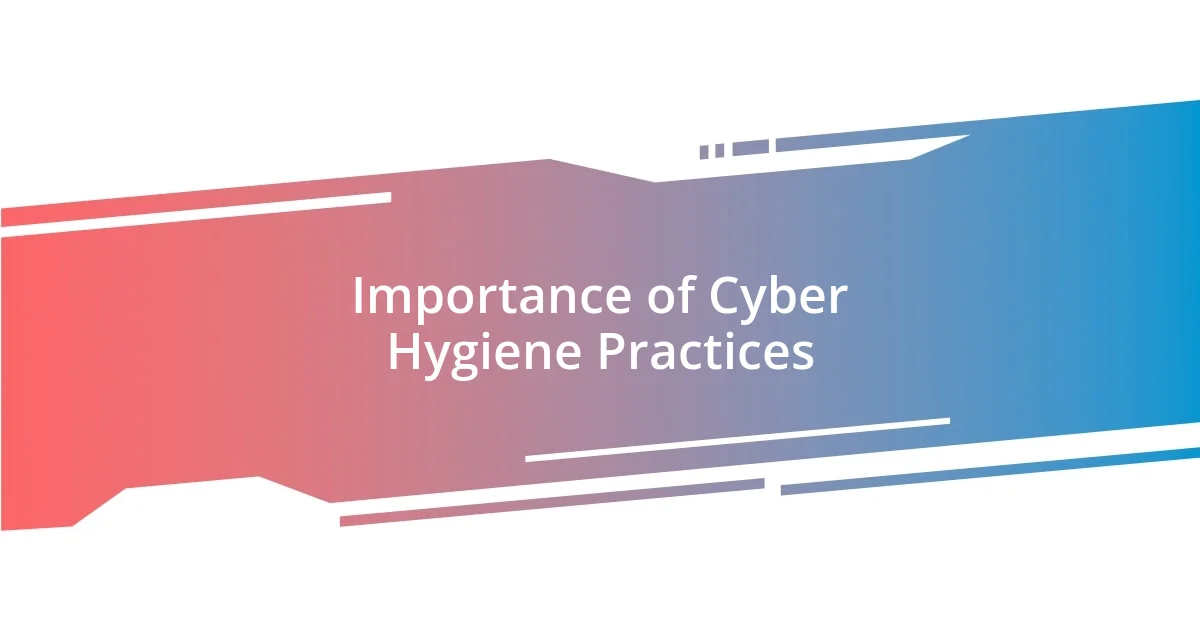
Importance of Cyber Hygiene Practices
Maintaining robust cyber hygiene practices is crucial in today’s digital landscape where threats lurk around every corner. When I first started taking cyber hygiene seriously, I realized that even the smallest lapses could lead to significant consequences. For instance, a friend of mine neglected to regularly update her antivirus software. It only took one click on a seemingly innocent link for her to find herself dealing with a nasty malware infection. The frustration and fear that came with that experience were eye-opening for both of us.
Here are some essential reasons why practicing good cyber hygiene is important:
- Prevention of Data Breaches: Keeping software updated closes security vulnerabilities, making it harder for hackers to exploit.
- Protection Against Identity Theft: Strong, unique passwords limit the risk of unauthorized access to sensitive personal information.
- Safeguarding Personal and Professional Reputation: Data loss due to poor practices can tarnish your credibility in both personal and professional arenas.
- Mitigation of Financial Losses: By ensuring you follow best practices, you reduce the risk of falling victim to costly cyberattacks.
- Peace of Mind: Knowing that you’ve taken steps to protect your digital presence allows you to enjoy your online experiences without anxiety.
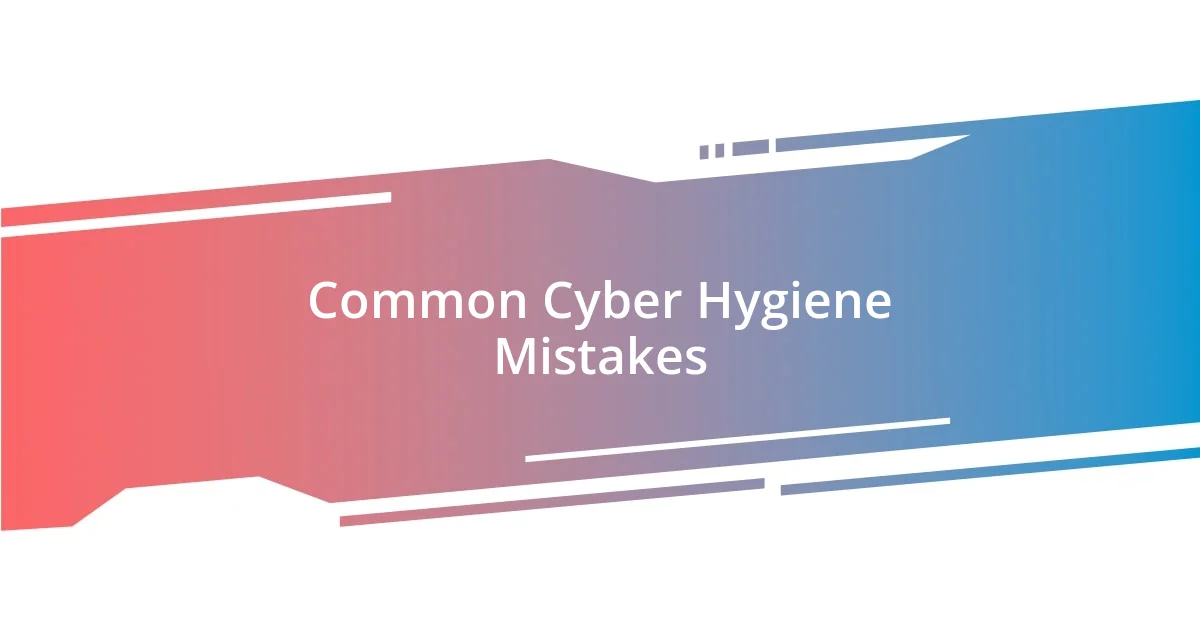
Common Cyber Hygiene Mistakes
One common cyber hygiene mistake I see often is neglecting to enable two-factor authentication (2FA) on important accounts. Personally, I remember the first time I realized how easy it was for someone to access my email without this extra layer of security. Adding 2FA felt like installing a deadbolt on my front door, and I can’t stress enough how much safer it made me feel. Have you considered it for your accounts?
Another frequent oversight is failing to recognize phishing attempts. A few years back, I almost fell for a well-crafted email that appeared to be from my bank. Thankfully, my instincts kicked in, and I decided to double-check. That moment underscored how crucial it is to scrutinize unexpected messages. Just a second of doubt might save you from a potential disaster.
Lastly, many people underestimate the importance of audit trails or regularly reviewing account activity and access logs. I learned this the hard way after discovering suspicious logins on my social media accounts. It was a wake-up call for me, reminding me to be vigilant. A simple habit of checking can make a world of difference in detecting any unauthorized access early on.
| Common Mistakes | Impact |
|---|---|
| Neglecting 2FA | Increased risk of unauthorized access |
| Ignoring phishing attempts | Potential loss of sensitive information |
| Failing to review account activity | Delayed detection of security breaches |
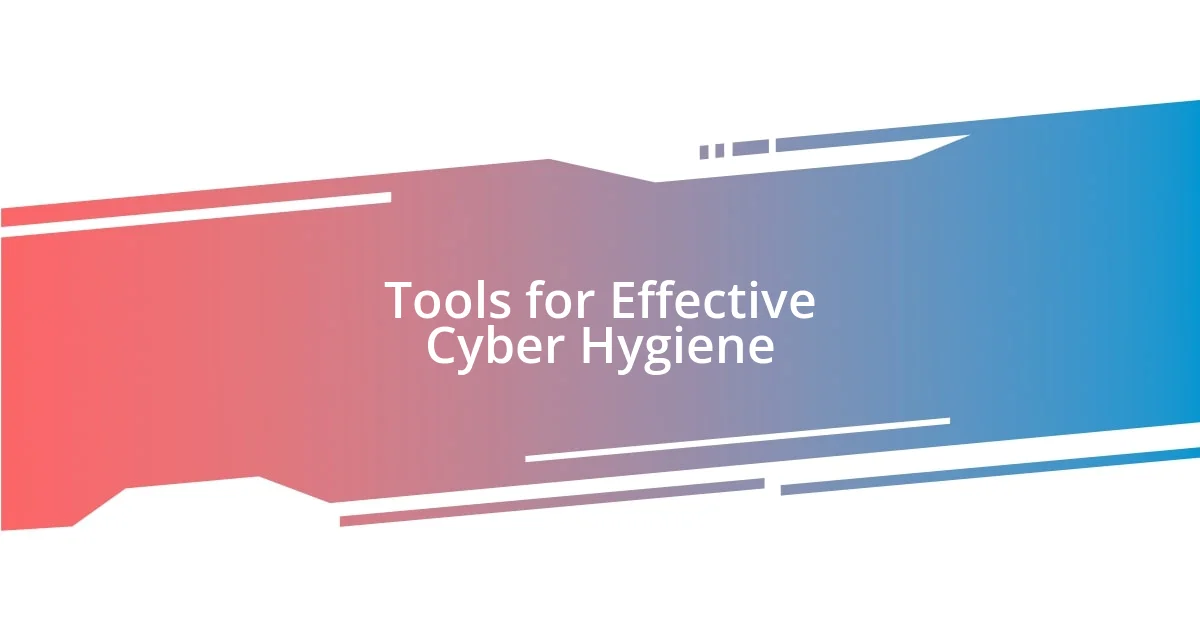
Tools for Effective Cyber Hygiene
When it comes to tools for effective cyber hygiene, I’ve found that using a password manager is an absolute game-changer. I remember my frustration when I struggled to remember multiple complex passwords. Switching to a password manager not only simplified my online life but also significantly boosted my security. Have you ever felt overwhelmed by the number of accounts you need to protect? A good password manager can create strong passwords and store them securely, allowing you to focus on what really matters.
Another tool I’ve come to rely on is a comprehensive security suite, which goes beyond just antivirus software. This suite provides real-time protection against various threats, like malware and ransomware, while also offering features such as a firewall and web protection. After a close encounter with a phishing site that looked eerily legitimate, I realized that having this layered defense was crucial. It gives me peace of mind knowing that my devices are actively monitored and safeguarded against emerging threats. Are you taking full advantage of all the protective features that your security software offers?
Lastly, I can’t emphasize how useful VPNs (Virtual Private Networks) have been for me, especially when using public Wi-Fi. One evening, while working from a café, I overheard someone discussing how easy it is for hackers to intercept unencrypted connections. I felt a chill down my spine; that experience pushed me to start using a VPN, which encrypts my data and keeps my online activity private. It’s incredible how a simple tool can transform your sense of security in the digital world. Have you considered the benefits of using a VPN for your own online safety?
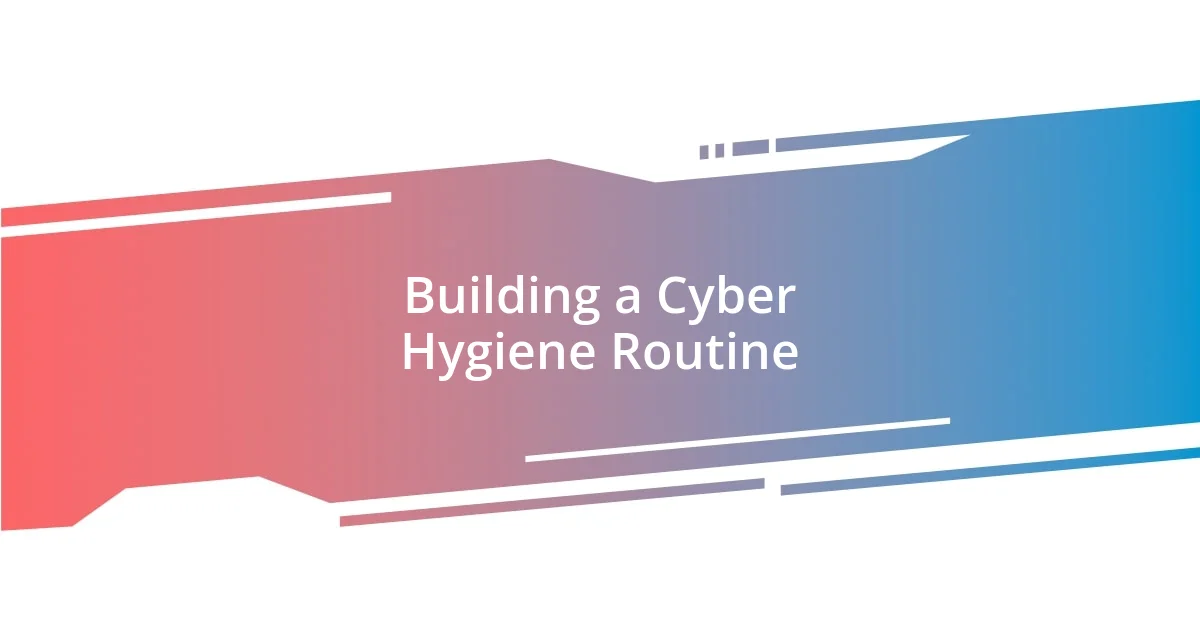
Building a Cyber Hygiene Routine
Building a cyber hygiene routine is like establishing a personal fitness regimen; consistency is key. I’ve learned that setting aside a few minutes each week to update my passwords and review account settings makes a significant difference. Have you considered how quickly things can slip through the cracks if you don’t make it a habit?
One thing I’ve incorporated into my schedule is a monthly security audit. This entails checking my devices for outdated software, which can be a real vulnerability. I remember feeling uneasy after a friend fell victim to a malware attack due to neglecting an update. Understanding that even the best security practices require regular attention has helped cement this as a crucial part of my routine. What steps can you take to ensure your software is always up-to-date?
Additionally, I believe that creating an action plan for when I do encounter a suspicious email or unexpected pop-up is essential. My heart raced when I faced a potential phishing attempt recently, but having a pre-established response ready calmed my fears and guided me on what to do next. I encourage you to think about what your first steps would be in such a situation. How can preparing in advance protect you and enhance your overall cyber hygiene?
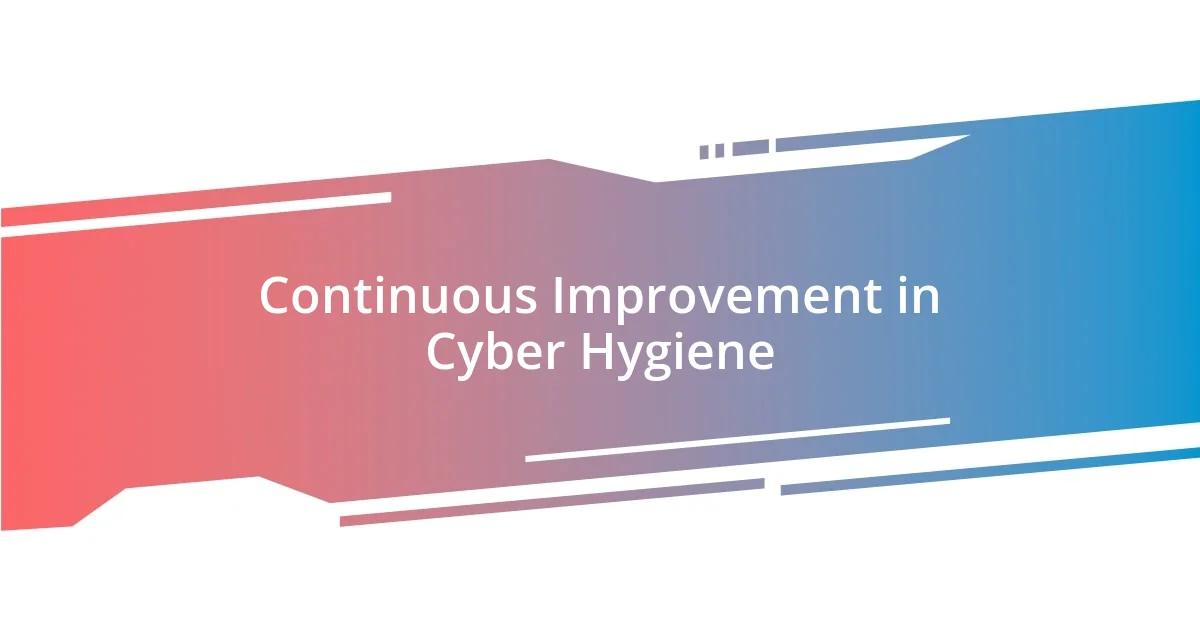
Continuous Improvement in Cyber Hygiene
Continuous improvement in cyber hygiene is vital in our ever-evolving digital landscape. I recall a time when I thought my basic security measures were enough. After a close call with a data breach, I realized I needed to adapt and enhance my practices continuously. It’s almost like a never-ending journey, don’t you think? Staying informed about the latest cybersecurity trends and threats has become a regular part of my routine.
Incorporating learning into my life has also meant attending webinars and workshops focused on cyber hygiene. I remember sitting in a session where the facilitator shared real-life case studies of businesses that faltered due to poor cyber practices. Seeing the significant impact of these failures hit home for me. It made me wonder—how many businesses overlook the importance of continuous learning until it’s too late? These insights have spurred me to reassess and upgrade my defenses regularly.
Moreover, I’ve adopted a mindset of vulnerability management, which is about recognizing that even the best systems can fail. After experiencing a minor incident where I nearly clicked on a malicious link, I decided to implement a bi-weekly review of my security measures. This proactive approach has not only fortified my defenses but also shifted my mindset from being reactive to preventative. Have you ever considered how being proactive can dramatically reduce your risk? It’s a game changer, for sure.
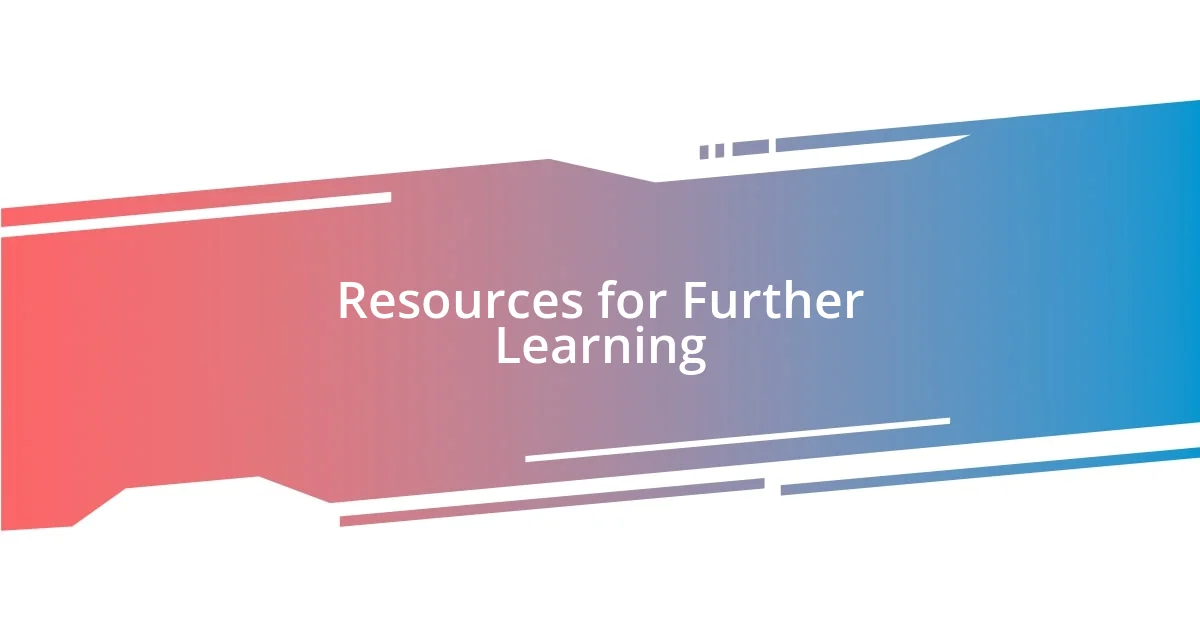
Resources for Further Learning
When it comes to enhancing my knowledge of cyber hygiene, I’ve found some invaluable resources. The website StaySafeOnline offers a plethora of tips and guidelines that are incredibly user-friendly. I vividly recall browsing through their tips on password management, and it really motivated me to reevaluate my approach—I think you’d find it just as enlightening!
Another fantastic resource I’ve stumbled upon is the Cybersecurity & Infrastructure Security Agency (CISA) website. They provide detailed guides and checklists that I often refer to during my monthly security audits. It’s one thing to read about best practices, but CISA’s actionable steps gave me peace of mind, especially after realizing how close I had come to ignoring potential vulnerabilities in my system. Have you ever felt the weight lift off your shoulders when you know you’ve taken measures to secure your digital space?
Podcasts have also become an entertaining way for me to learn more about cyber hygiene. I recently listened to an episode on cybersecurity threats that kept me on the edge of my seat. The host shared her experience of responding to a ransomware attack, which was both terrifying and eye-opening. It made me think—how often do we underestimate the risks until we hear real stories? I encourage you to explore these mediums; they can provide insight and even inspire memorable changes in your own routine.


